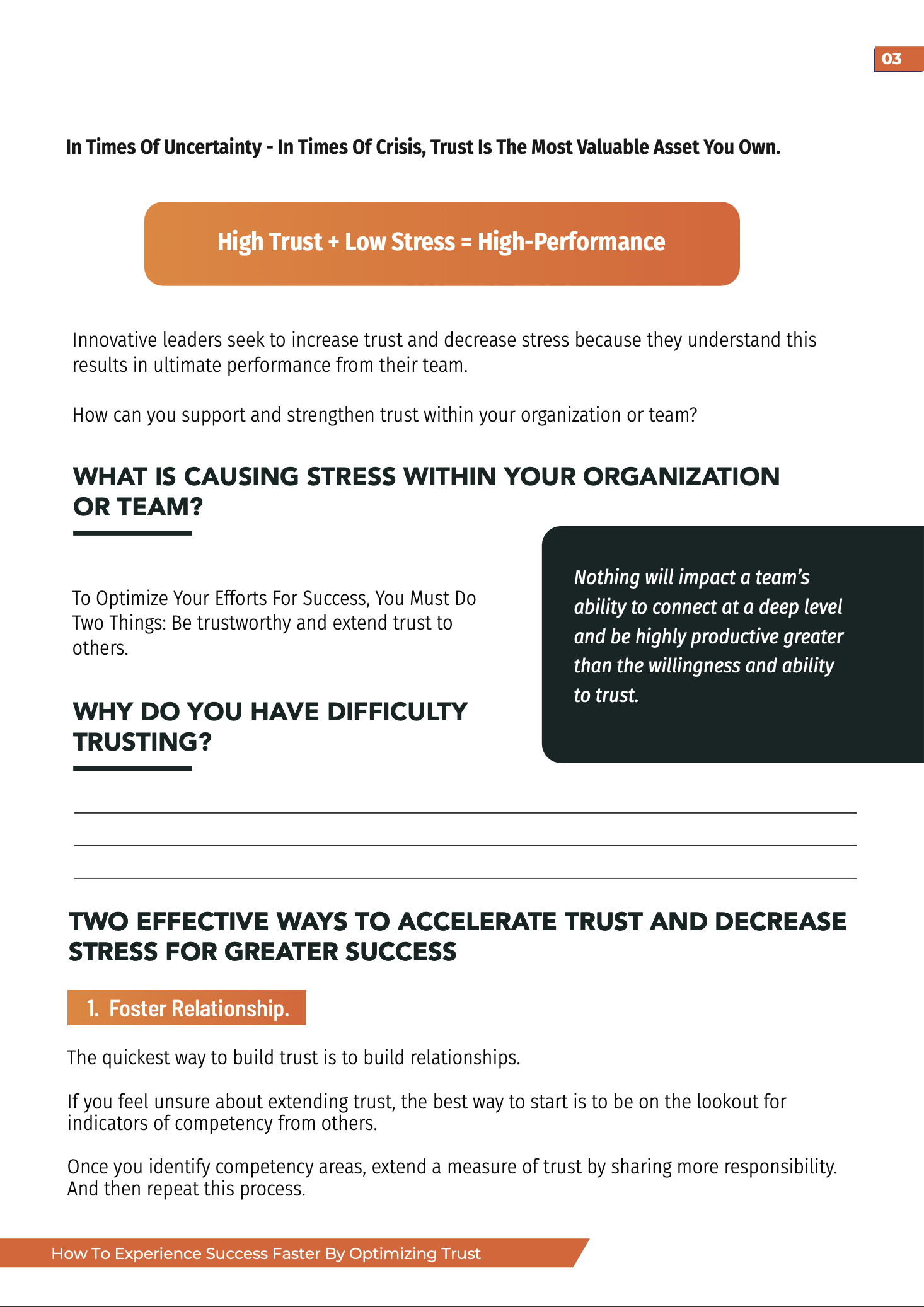Church leadership problems are nothing new, and every leader will have to navigate difficulty at some point. Leadership is a complex journey full of change that requires extreme adaptability. The best leaders understand that challenges come with the role and work hard to resolve problems and prevent unnecessary hardship.
Church leadership problems can be painful for everyone involved. Maybe you’re the leader or someone in the middle and don’t know what to do. This blog post will discuss practical ways to successfully resolve and prevent church leadership problems without splitting up your staff or congregation.
5 Common Church Leadership Problems
Church leadership problems can happen to the best of churches and church leaders. If you’re a pastor or church leader, what can you do to avoid troubling issues or overcome the ones you’re facing? Being aware of common church leadership problems can help you safeguard against a leadership crisis.
You can take measures to create a healthy environment for leadership and frameworks for making quality leadership decisions.

1. Inadequate Training For Staff & Team Members
Many pastors and church leaders learn most aspects of ministry that require leadership skills along the way. Without previous experience or an example to follow, church leaders can run into problems when training and empowering a team.
For some, leadership comes intuitively. However, so many dynamics require nuance, and it’s necessary to sharpen your leadership skills to create a collaborative environment.
Most people holding leadership positions in churches often don’t have leadership skills. This issue is perhaps one of the most common leadership problems in churches.
As a result, they find it challenging to make decisions, handle conflict, and motivate people. This issue often leads to division in the church and a lack of direction for the congregation.
Some leaders are great at sharing a vision and getting others to rally around an idea. Others understand how to equip a team by providing adequate information and skill. Leading a team requires a reasonable degree of both qualities.
Church leadership problems arise when leaders lack self-awareness or willingness to budge on their pre-disposition. Every leader must be willing to empathize with their team, receive feedback, make adjustments, and empower others.
If you or your team need help, check out the post: 14 Valuable Church Leadership Development Tools For Teams. You’ll find some of the most relevant church leadership development resources available from the top leaders and experts.

Poor church leadership training will surface in a variety of ways, such as:
- Lack of clear policies, procedures, and expectations
- Ineffective or non-existent communication among staff
- Weak or non-existent structure
- Poor delegation of tasks
- Improper onboarding of new team members
- Micromanagement
For leadership teams to thrive, members need clear expectations. This necessity means they need to understand their roles and responsibilities. Sufficient structure and strategy are also necessary to support the vision.
You’ll likely notice mounting frustration among team members if your church struggles with these issues.
2. Lack Of Preparation For Church Transition
Leadership change and transition are worthy of proper planning, strategy, and communication. Preparing for leadership changes or communicating about one that has abruptly taken place requires transparent, open communication. Clear communication will help keep everyone at ease and is a significant factor in successful church transitions.
Communication is a substantial factor in the experience during and success of a transition. In pastoral changes that had positive outcomes, 41 percent of congregants said the plan and process of succession were communicated by leadership very clearly. More than half of congregants who had more negative experiences (53%) say the communication was not very clear. – barna.com
Overlooking the importance of preparing for and openly communicating change often leads to significant church leadership problems. Regardless of the type of change, whether a change in leadership or strategy, adequate planning and communication are essential to avoiding unnecessary conflict.
If pastors and leaders dismiss the value of preparing for a change, it can create chaos, confusion, and loss. If you are navigating change, check out the post: 5 Critical Rules For Leading A Successful Church Transition. The article shares vital tips for retaining and garnering trust during complex changes in the church.

3. Ignoring An Unhealthy Culture
Recognizing an unhealthy culture is essential to addressing church leadership problems. Ignoring ongoing behaviors that affect the health and morale of the team or church will result in painful consequences. If you begin to notice toxicity within your church, you must confront it quickly.
Every church has a good or bad culture; you cannot avoid creating an environment based on underlying beliefs that drive behaviors. Prominent behaviors will influence how a team interacts and performs together. If the beliefs and behaviors motivating how a team leads and makes decisions are unhealthy, the culture will become toxic.
5 Problems That Surface From An Unhealthy Leadership Culture
1. Cliques
When staff or members purposefully exclude others, give preferential treatment, or isolate themself, it is detrimental to the church. This type of behavior is an indicator of unhealthy church leadership problems.
2. Gossip
Gossiping will spread toxicity and erode trust within a church. Gossip breeds negativity, discord, and low morale.
The next time you want to talk about someone (i.e., gossip), speak to them instead. If you can’t or won’t, there’s something wrong. Pay attention to that. – careynieuwhof.com
Gossip is a character flaw, and if you do not address it, healthy team members will grow tired, lose respect for leadership and decide to move on.
3. Silos
Another common leadership problem that can develop within churches face is ministry silos. Silos form when there are poor communication channels, a lack of direction, and an inability to collaborate.
When this happens, different staff members or groups of people become isolated from one another and stop working together as a team. It can be challenging to develop a unified vision for the church when different groups work independently from one another.
4. Turnover
If your team has a high turnover, it is often an indicator of a deeper problem below the surface. The cost of turnover is exhausting because it takes a toll on productivity, resources, and staff members who stick around.
If staff members or volunteers are only sticking around for a relatively short amount of time, more than likely, it’s related to an unhealthy culture.
5. Burnout
Thankfully, more and more busyness is no longer the badge of honor it once was. Churches and organizations are beginning to recognize the importance of rest, collaboration, and work-life balance.
Unfortunately, church leadership problems are not uncommon and result from a lack of communication, unclear job roles, and low morale.
When church staff members don’t clearly understand their roles and responsibilities or are not working together as a team, it can lead to conflict and frustration. Too often, an unhealthy culture leads to misunderstandings, hurt in the church, and other detrimental outcomes.
A lack of communication, low trust, and unclear vision will contribute to an unhealthy culture. To learn more about creating and maintaining an environment that people thrive in, check out the post: The 3 Critical Components Of Building A Healthy Church Culture.

4. Overlooking The Importance Of One’s Well-being
Pastors and ministry leaders are notorious for prioritizing others’ needs, wants, and even demands. There are four critical areas of health that leaders must keep intact to remain effective in the long run:
- Spiritual Health
- Relational Health
- Mental Health
- Physical Health
When one or multiple aspects of your health are significantly suffering, it will take a toll on your well-being. Creating space for the areas you need to address should be supported and admired.
The harsh reality is if you don’t set clear boundaries, you will end up with many things in your life—that you did not invite and certainly do not want. – Henry Cloud
If your well-being is questionable, pushing harder, ignoring the signs, and remaining indifferent to your own needs will perpetuate the problem. Leadership is like a drug for some, and the constant rush of crisis, crowds, and admiration can overshadow the need to address troubling issues.
Church leadership problems will compound when those leading the way overlook their well-being out of insecurity, fear, and a lack of self-awareness. Check out the post, How To Be An Effective Leader In The Church, to discover the traits and characteristics of health leaders.
5. Resistance To Change
Church leadership problems can surface when leaders are rigid and resistant to change. Whether it is a fear of looking vulnerable or an unwillingness to let go of the past, leaders who refuse to adopt new ways of doing things will have trouble retaining team members and staying relevant.
A church leader’s ability to listen to different perspectives, consider new ideas, and remain comfortable with unpredictability will communicate a willingness to adapt to team members.
Leaders must be willing to look beyond the current comforts that certain ways of doing things have made possible to see how maintaining the status quo may be detrimental.
Church leadership problems arise because leaders postpone change until the pain becomes intolerable – however, they are blind to the amount of pain that others within the team have already experienced.
Even if there is some problem, you have learned to live with the problem, and the pain is bearable. You don’t foresee that if the problem continues, it can become a big issue at some point, the pain would become unbearable and massive action will be required on your part. – Harsh Johari
Leaders willing to make calculated changes, listen to feedback, and implement new strategies will stay current and build a successful team.
Stop the Chaos
Create a High-Trust Team That Works Together
If your leadership team feels fractured, stressed, or stuck in conflict, this bundle is your solution. Designed to help overwhelmed church leaders, the Unified Team Bundle gives you the tools to quickly get things moving in the right direction. Start buildinging trust, empowering decision-making, and resolving conflicts—without endless meetings or burnout.
$19.97 for a limited time only
*By purchasing you agree to the Terms & Conditions
Build a Unified Team Bundle: Empower Leadership and Build Trust
Was $39.97, now $19.97
Are you struggling with trust issues or team conflict in your ministry? The Unified Team Bundle is designed to help church leaders overcome the frustrations of disconnected teams, micromanagement, and miscommunication. With two actionable guides, you’ll learn how to:
- Move The Needle Toward Trust: Implement straightforward techniques that strengthen relationships within your team, nurture trust even in uncertain times.
- Empower Leaders to Thrive: Equip your leaders with tools and confidence to make sound decisions, reducing the need for constant oversight and micromanagement.
- Resolve Conflicts Effectively: Learn proven strategies for handling disagreements swiftly and maintaining team alignment, ensuring that challenges are met with understanding and clarity of purpose.
What You’ll Receive:
- The Super Simple Guide to Building Trust in a Team – Develop trust and reduce stress to accelerate your team’s performance.
- Three Questions to Empower Your Team to Lead – Encourage proactive leadership and create a self-leading, high-performance team.
Achieve transformation in your team within days. Ideal for church leaders facing constant team challenges who need some quick wins.
Overview & Preview
Bundle Details
2 Guidebooks
What Does It Cover?
✅ Build Trust Fast: Discover simple strategies to strengthen relationships and foster trust, even during uncertainty.
✅ Empower Decision-Making: Equip your leaders to step up confidently, reducing the need for micromanagement.
✅ Handle Conflict Efficiently: Resolve disagreements with proven methods to keep your team aligned.
✅ Get Instant Access! With immediate digital access, you can start implementing these strategies today. Print, email, or present the materials directly to your team.
Look Inside…
Get it Now!
Excellent for the seasoned leader or a new volunteer who is ready to implement proven strategies to empower their team and overcome miscommunication and strife in their church.
3 Traits That Can Soften Church Leadership Problems
Resolving conflict in church leadership is crucial for the church’s health and members. It’s essential to have a process to deal with these problems and address each issue healthily.
Below are three essential areas of focus and leadership resources that can help resolve or prevent church leadership problems. Your team and church can remain intact, even amid difficulty.
Strong Communication
Lack of communication is often at the root of church leadership problems. If people feel like their leader is not listening or ignoring their concerns, they will move on. So the first step in resolving conflict is to strengthen communication within the team. This step means making sure everyone has a voice and that all discussions are open and honest.
High Trust
You must also create an environment of trust. A high trust environment means that people feel comfortable sharing their thoughts and feelings and confident that leaders take their concerns seriously. When there is trust among the team, it’s easier to resolve conflicts constructively.
Practiced Accountability
Practicing accountability means holding people accountable for their actions and words. When people know that they will be held responsible for their behavior, they are less likely to act out or cause problems.
Ultimately, you won’t solve any church leadership problems until you create accountability within your team and congregation. You can create accountability by establishing clear expectations, remaining transparent, and valuing feedback.
3 Resources To Help Your Team Resolve Church Leadership Problems
The Unified Church Team Training

The Unified Church Team Training focuses on helping teams increase trust and decrease stress. In this workshop, your staff get to know each other better and learn how to create a culture of ownership and personal responsibility.
They’ll learn the three strategies for building trust and what to do if it breaks. Trust is essential to your church working together cohesively under a shared purpose.
Managing church leadership problems is possible with the right know-how and framework. Providing your team with a common language and strategy for building trust can transform the leadership dynamics within your church.
The Art Of Team Leadership

The Art Of Team Leadership With Carey Nieuwhof provides principles and tools to help leaders understand and improve three critical components of leading a team:
- How To Create A Mission-Focused & Value-Driven Culture
- Maximizing Your Team’s Productivity & Performance For Better Results
- Strengthening Communication & Workflow Across The Organization
Transformational Leadership (TL)
![]()
Transformational Leadership is a powerful, eye-opening workshop that helps individuals and teams explore and assess their leadership personally and within an organization.
The goal of the Transformational Leadership Workshop is to help leaders remove constraints that are preventing personal and organizational growth, develop leadership skills, and empower others.
To learn more about each opportunity, you can use the links above or visit this post where each workshop is explored in-depth: 3 Church Leadership Workshops For Transformation & Growth.
I have personally experienced Transformational Leadership and The Art Of Team Leadership; both are phenomenal. I am the creator and facilitator of The Trust Table Workshop and am happy to answer any questions you may have.
Church Leadership Problems Summary
Church leadership problems can make or break a church. However, it is possible to work through your issues without splitting up your staff. Addressing the issues with honesty and sincerity while utilizing helpful resources can help you overcome the church leadership problems.
Adaptable Leader Crash Course
Get the FREE 4-part email guide to help you become a more agile and empathetic leader in your ministry.









